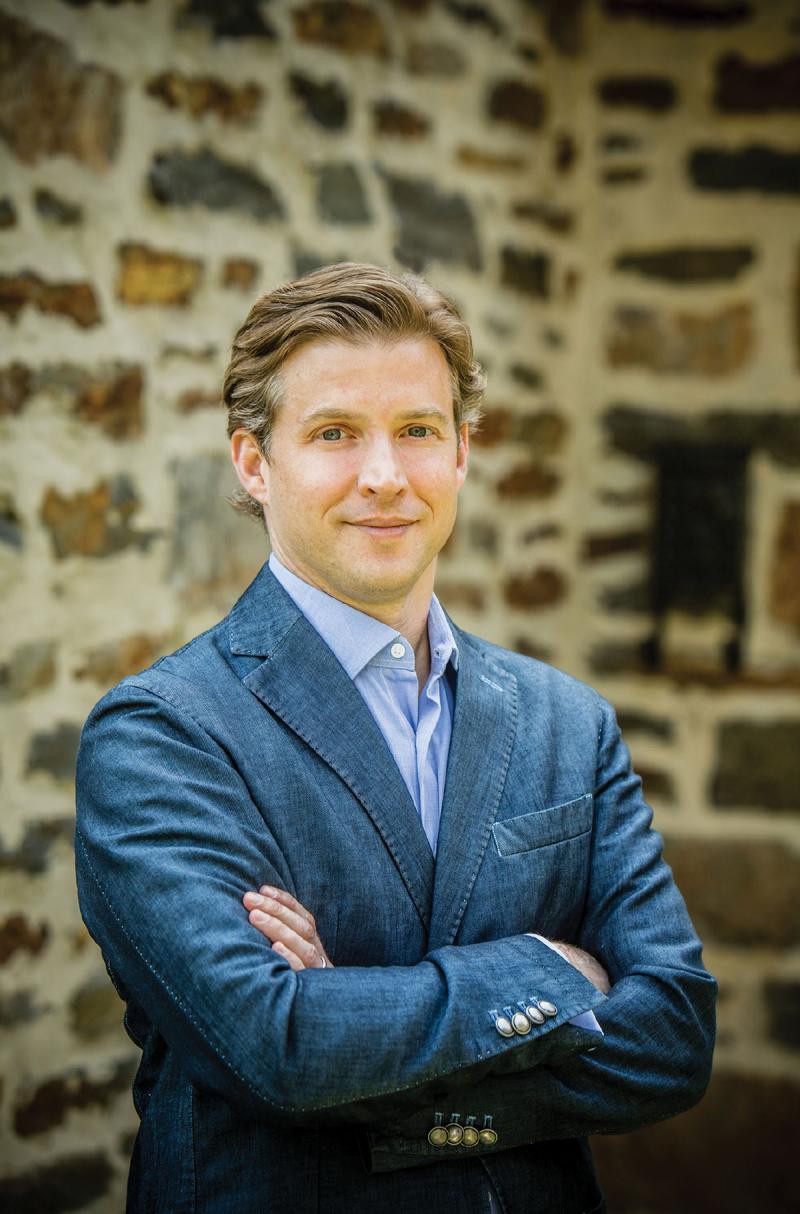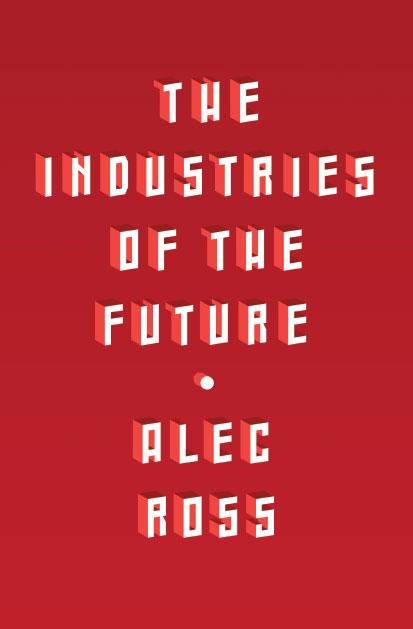
In a classic Smalltimore moment, when STYLE asked me to interview Alec Ross, I’d already spent countless hours with his wife, and my children with his children. For years, we’ve all been availing ourselves of the public schools and libraries, while Ross has taken career turns as teacher, entrepreneur, policy adviser and author. When we met, he was about to take off on a global journey—headed to Japan then Mexico then more distant shores, on a breakneck itinerary. “I travel like a madman,” he says.

On Feb. 2, Simon & Schuster releases his book, The Industries of the Future, in which Ross shares what he learned about technology and world culture while working as a policy adviser for former Secretary of State Hillary Clinton. The book opens with a story about Ross working on a janitorial crew in his West Virginia hometown, cleaning puke alongside men left behind by the state’s shifting economy. From there he launches into a discussion about the anxiety and opportunities created as jobs revolve around new raw materials—for example, data instead of coal. Just as the Industrial Revolution changed lives, the current technology revolution is putting us through our paces now, and change has never happened at a faster rate. Ross wants to help his readers navigate what’s happening, understand why and learn how to stay ahead of the curve. Here’s a slice of the conversation we had in his Homeland home.
Who’s this book for? I’m not writing this for my friends. I want to reach a mass audience so that parents will push their kids to have valuable skills. Most college-educated, middle-class Americans don’t know that much about big data or genomes. It’s scary content, and they don’t want to read something by an MIT professor. I’m on a social mission because I see that there’s a vast income gap, and I’m concerned that people don’t understand the forces that are driving change.
Your book focuses on cybersecurity, genomics and robotics as industries of the future. Should students focus on STEM programs? A dispassionate reading of the numbers says that STEM [science, technology, engineering and math] is important. STEM is good but insufficient. It’s like this: either you are going to be telling the machines what to do, or vice versa. A good grasp of STEM will get you into the middle class, but to go beyond that—communication, synthesis, creativity—those are really important.
You’re a “distinguished visiting fellow” at Johns Hopkins, appointed by President Ron Daniels. What’s your role? I try to be a resource for economic development for Baltimore. Baltimore’s best hope is to be the home of breakthrough genomics companies of the future, the way the Bay Area is home to tech industries. The next trillion-dollar industry will be created out of genetic code. Most Silicon Valley players don’t even know about Baltimore, so my goal is to get venture capital [here]. I’m also giving a series of lectures at JHU with an interdisciplinary focus—teaching medical students about international politics …
Which countries offer good examples of intelligent growth? President [Thomas Hendrik] Ilves of Estonia is doing amazing things, and today Estonia is one of the most connected countries in the world. It has the world’s fastest Internet, universal health care records, online tax filing and voting. They use technology the right way, to cut down on paperwork and speed up productivity.
Which countries are doing it wrong? There are about a dozen countries that I am not allowed to travel to anymore because of things I’ve said, and Russia is one of them. These 21st-century authoritarian leaders are bad people. If there’s a hell, they’ll burn.
Any good Putin stories? Putin referred to me publicly as “Hillary’s little revolutionary.” He thought he was insulting me.
In your book you say that your most important job has always been being a parent. How so? We have to help our kids learn how to think and analyze. They need to know languages, both linguistic and technical. The liberal arts are important for success in the future, and the more ink stamps on your kid’s passport the better. The younger we expose them to different cultures and ways of living, the more immersed they can become in different things, the better. You can’t start too soon.
You write that empowerment of women is a nation’s greatest indicator of innovation. More on that? Traveling the world with the State Department and seeing the way that women are systematically disadvantaged—it radicalized me. The U.S. has gender bias, but it’s exponentially worse abroad. In countries with vibrant economies, like Scandinavia or the Baltics, you find that women are on a near equal footing with men, with no bias baked into the workplace. It’s difficult to unwind centuries of gender bias and violence—ISIS has legitimized rape under the flag of Islam—but I just don’t buy this cultural norms B.S.
What do you do when you’re on the ground in Baltimore? My focus is helping to unleash the genius that goes undiscovered in Baltimore. I believe that the sixth-graders in Booker T. Washington Elementary are equal to people in the situation room in the White House—absolutely equal in raw material. My focus is to make sure that potential doesn’t go undeveloped. I’m working along with my wife to help expand the Ingenuity Project [a math and science program in public Baltimore City schools], because I believe a big part of our work is intentionality—affirmative outreach and action. If you don’t try really hard to include a group, you will end up excluding them. You and I are excessive advocates for our kids, but not every parent is.
Will you and your family stay in Baltimore? I’m here for the long haul. I have 21 years here already. There’s no place I haven’t been and no place I’d rather be.




